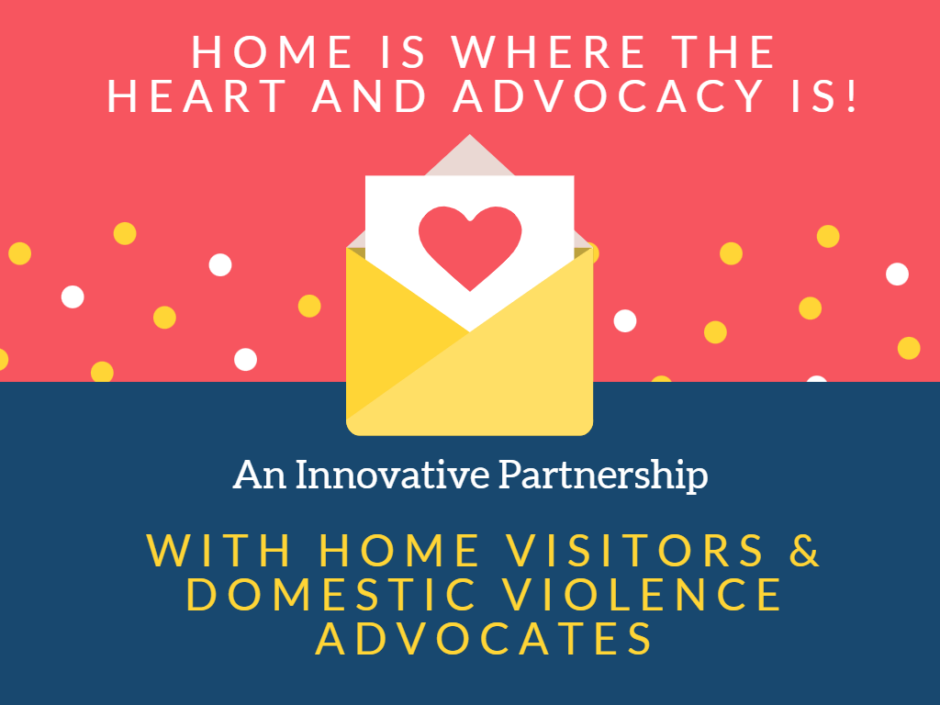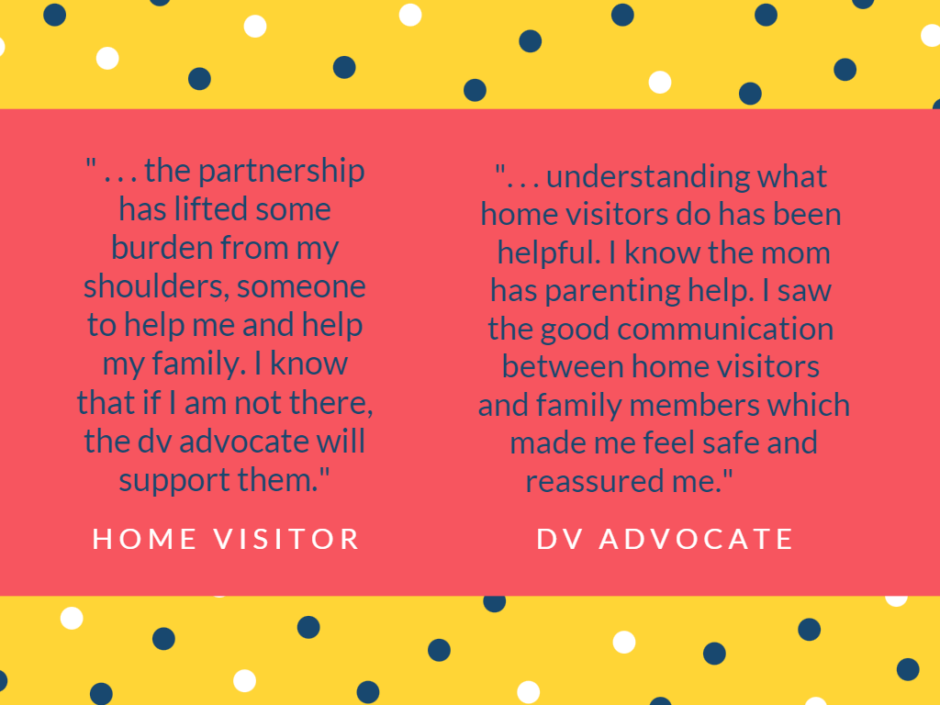The relationship is the intervention

Innovative Partnership pilots between community-based home visiting programs and domestic violence/sexual abuse advocates supporting families experiencing coercion and abuse.
Background
Since 2014, WSCADV has partnered with Washington Department of Children Youth and Families (formerly DEL), StartEarly Washington and WA State Department of Health on an innovative approach to supporting families impacted by intimate partner violence.
Our approach provides training, consultation and ongoing support to broaden our community partnerships that supports the integration of a prevention perspective that is informed by what we have learned from survivors and their families participating in the home visiting programs while fostering innovative partnerships between DV advocacy programs and home visiting programs. Key elements include mobile survivor-centered domestic violence (DV) advocacy, shared visits, and Domestic Violence Housing First flexible financial assistance and community engagement approaches.
Our innovative partnership pilots have combined flexible financial assistance, mobile DV advocacy services, and community engagement coupled with community-based home visitors (many who receive federal funding) on behalf of families who are both enrolled in home visiting and experiencing the direct impacts of domestic violence and/or sexual abuse while matching the self-identified needs of the survivor and children. For example, advocates use community engagement strategies to build relationships with public and private housing/landlords to increase access to affordable and safe housing, prevent evictions and stabilize housing for survivors and their families.
The community-based home visitors are a bridge for pregnant and parenting survivors of domestic and sexual abuse, to advocates who are trained in DV Housing First approaches, including mobile advocacy, flexible financial assistance, and community engagement. These deeper partnerships, combined with concrete supports for housing stability through flexible financial assistance, are unique to both the home visiting and DV/sexual assault advocacy practices in our state, and nationally.
Community-based home visitors are trusted community leaders whose deep connections help facilitate access to resources tailored to what the family says they want and need. This community-based home visiting approach coupled with domestic and sexual abuse advocacy services holds great promise for prevention of further abuse, reducing a family’s involvement with child welfare related systems, and healing from trauma.
Strategic partnerships
WSCADV has built strategic relationships with community-based home visiting programs “by and for” communities of color. Community-based home visitors are deeply engaged in their own communities, providing connection and support to strengthen families that experience the greatest inequities and restricted access to resources. These community-based programs have home visitors who often share lived experiences with the families they support.
Community based home visitors and advocates have shared values and practices that center the survivor and their family including families who are staying together or in contact with the person causing harm. This innovative partnership combines community-based home visitors coupled with dv advocates who provide advocacy that is mobile, trauma-informed, culturally meaningful, and accessible to families who reside in urban and rural communities and include BIPOC, refugees and immigrants, and farm worker families.
What helped

“We worked with the dv advocacy program to get flexible financial assistance to hire a post-partum doula for overnight care for a month for mom with C-section (with a 2 and 4 yr. old and newborn). This mom separated from her abuser partner and is totally on her own. She is recovering with no childcare, no one to make the meals, no support and the garbage dumpster for the building is one block away. This partnership helped her get support; we were able to connect her by phone to the advocacy program for long-term services when she was ready physically.” –Community-based Outreach Doula, Open Arms Perinatal Services
Some data
In 2018 – Yakima County, WA: 79 survivor/home visitor enrolled families with a combined total of 204 children.
In 2019 – 2020 – King County, WA: 42 survivor/home visitor enrolled families with a combined total of 74 children.
In 2020 – 2022 – King and Yakima Counties: Served 85 survivor/home visitor enrolled families and their children.
The range of flexible financial assistance for families included: $10 for a food handler’s license; $60 for a cell phone bill; $1,385 dollars for utility bills and $2,425 dollars for rental assistance, childcare debt, and car repair.